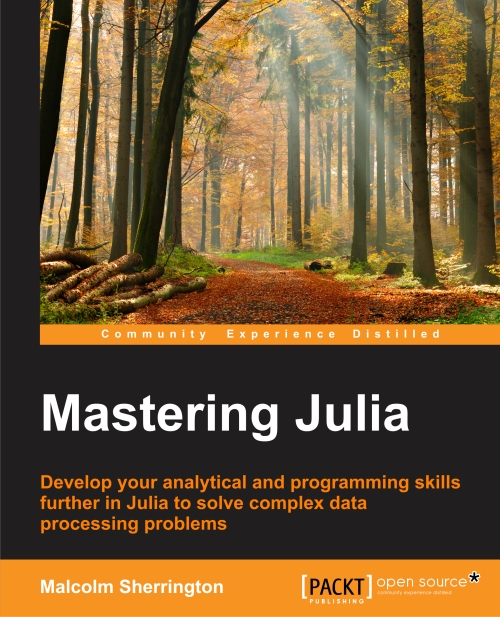Mastering Julia by Malcolm Sherrington
Contents
- Chapter 1: The Julia Environment
- Introduction
- Getting started
- A quick look at some Julia
- What makes Julia special
- Summary
- Chapter 2: Developing in Julia
- Integers, bits, bytes, and bools
- Arrays
- Char and strings
- Real, complex, and rational numbers
- Composite types
- More about matrices
- Data arrays and data frames
- Dictionaries, sets, and others
- Summary
- Chapter 3: Types and Dispatch
- Functions
- Julia’s type system
- Enumerations (revisited)
- Multiple dispatch
- Summary
- Chapter 4: Interoperability
- Interfacing with other programming environments
- Metaprogramming
- Tasks
- Executing commands
- Summary
- Working with Data
- Basic I/O
- Structured datasets
- DataFrames and RDatasets
- Statistics
- Selected topics
- Summary
- Chapter 6: Scientific Programming
- Linear algebra
- Signal processing
- Differential equations
- Optimization problems
- Stochastic problems
- Summary
- Chapter 7: Graphics
- Basic graphics in Julia
- Data visualization
- Graphic engines
- Using the Web
- Raster graphics
- Summary
- Chapter 8: Databases
- A basic view of databases
- Relational databases
- NoSQL datastores
- RESTful interfacing
- Summary
- Chapter 9: Networking
- Sockets and servers
- Working with the web
- Messaging
- Cloud services
- Summary
- Chapter 10: Working with Julia
- Under the hood
- Performance tips
- Developing a package
- Community groups
- What’s missing
- Summary
